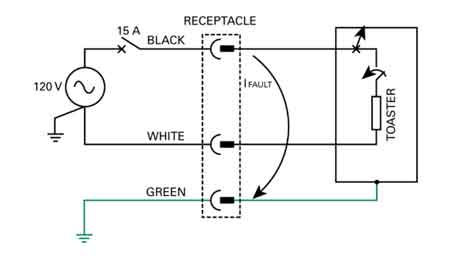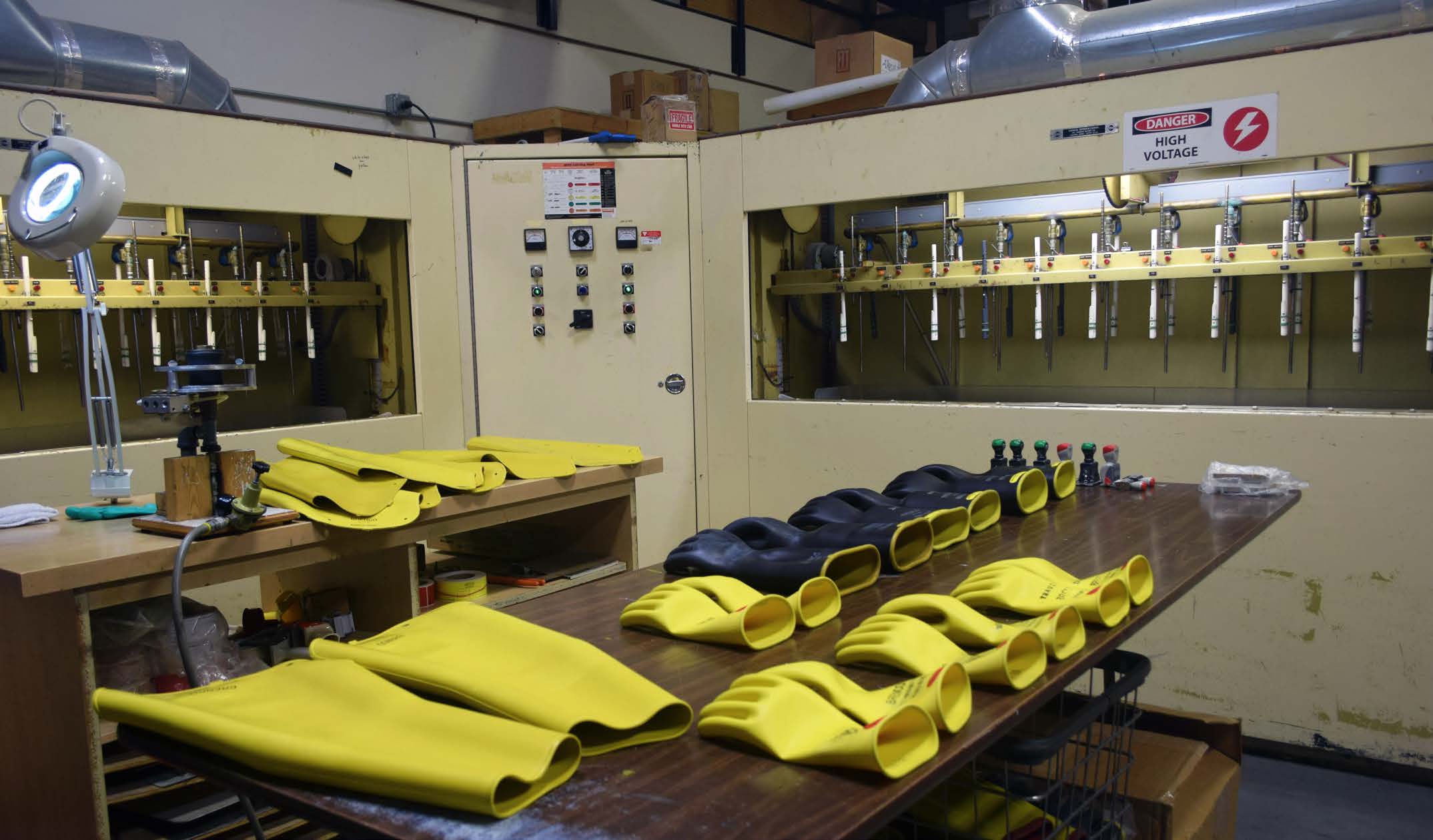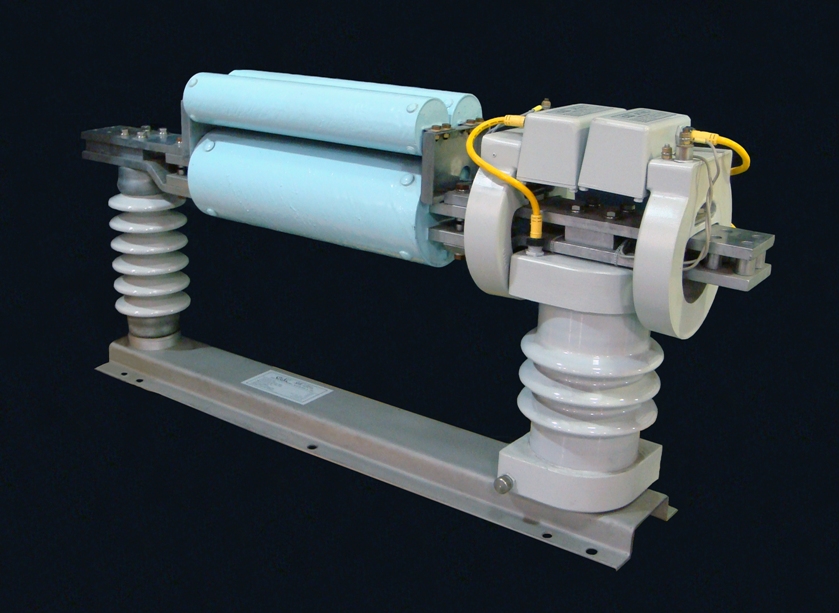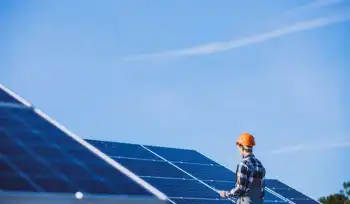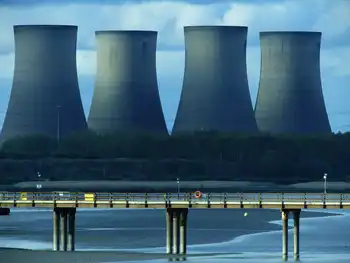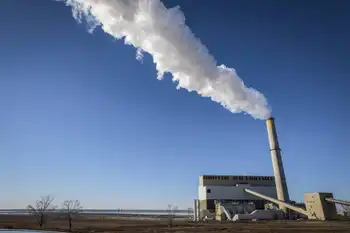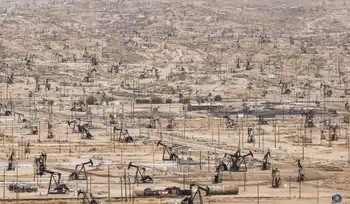100% Clean Energy Targets drive renewable electricity, decarbonization, and cost savings through state policies, CCAs, RECs, and mandates, with timelines and interim goals that boost jobs, resilience, and public health across cities, counties, and utilities.
Key Points
Policies for cities and states to reach 100% clean power by set dates, using mandates, RECs, and interim goals.
✅ Define eligible clean vs renewable resources
✅ Mandate vs goal framework with enforcement
✅ Timelines with interim targets and escape clauses
“An enormous amount of authority still rests with the states for determining your energy future. So we can build these policies that will become a postcard from the future for the rest of the country,” said David Hochschild, chair of the California Energy Commission, speaking last week at a UCLA summit on state and local progress toward 100 percent clean energy.
According to a new report from the UCLA Luskin Center for Innovation, 13 states, districts and territories, as well as more than 200 cities and counties, with standout clean energy purchases by Southeast cities helping drive momentum, have committed to a 100 percent clean electricity target — and dozens of cities have already hit it.
This means that one of every three Americans, or roughly 111 million U.S. residents representing 34 percent of the population, live in a community that has committed to or has already achieved 100 percent clean electricity, including communities like Frisco, Colorado that have set ambitious targets.
“We’re going to look back on this moment as the moment when local action and state commitments began to push the entire nation toward this goal,” said J.R. DeShazo, director of the UCLA Luskin Center for Innovation.
Not all 100 percent targets are alike, however. The report notes that these targets vary based on 1) what resources are eligible, 2) how binding the 100 percent target is, and 3) how and when the target will be achieved.
These distinctions will carry a lot of weight as the policy discussion shifts from setting goals to actually meeting targets. They also have implications for communities in terms of health benefits, cost savings and employment opportunities.
100% targets come in different forms
One key attribute is whether a target is based on "renewable" or "clean" energy resources. Some 100 percent targets, like Hawaii’s and Rhode Island’s 2030 plan, are focused exclusively on renewable energy, or sources that cannot be depleted, such as wind, solar and geothermal. But most jurisdictions use the broader term “clean energy,” which can also include resources like large hydroelectric generation and nuclear power.
States also vary in their treatment of renewable energy certificates, used to track and assign ownership to renewable energy generation and use. Unbundled RECs allow for the environmental attributes of the renewable energy resource to be purchased separately from the physical electricity delivery.
The binding nature of these targets is also noteworthy. Seven states, as well as Puerto Rico and the District of Columbia, have passed 100 percent clean energy transition laws. Of the jurisdictions that have passed 100 percent legislation, all but one specifies that the target is a “mandate,” according to the report. Nevada is the only state to call the target a “goal.”
Governors in four other states have signed executive orders with 100 percent clean energy goals.
Target timelines also vary. Washington, D.C. has set the most ambitious target date, with a mandate to achieve 100 percent renewable electricity by 2032. Other states and cities have set deadline years between 2040 and 2050. All "100 percent" state laws, and some city and county policies, also include interim targets to keep clean energy deployment on track.
In addition, some locations have included some form of escape clause. For instance, Salt Lake City, which last month passed a resolution establishing a goal of powering the county with 100 percent clean electricity by 2030, included “exit strategies” in its policy in order to encourage stakeholder buy-in, said Mayor Jackie Biskupski, speaking last week at the UCLA summit.
“We don’t think they’ll get used, but they’re there,” she said.
Other locales, meanwhile, have decided to go well beyond 100 percent clean electricity. The State of California and 44 cities have set even more challenging targets to also transition their entire transportation, heating and cooling sectors to 100 percent clean energy sources, and proposals like requiring solar panels on new buildings underscore how policy can accelerate progress across sectors.
Businesses are simultaneously electing to adopt more clean and renewable energy. Six utilities across the United States have set their own 100 percent clean or carbon-free electricity targets. UCLA researchers did not include populations served by these utilities in their analysis of locations with state and city 100 percent clean commitments.
“We cannot wait”
All state and local policies that require a certain share of electricity to come from renewable energy resources have contributed to more efficient project development and financing mechanisms, which have supported continued technology cost declines and contributed to a near doubling of renewable energy generation since 2008.
Many communities are switching to clean energy in order to save money, now that the cost calculation is increasingly in favor of renewables over fossil fuels, as more jurisdictions get on the road to 100% renewables worldwide. Additional benefits include local job creation, cleaner air and electricity system resilience due to greater reliance on local energy resources.
Another major motivator is climate change. The electricity sector is responsible for 28 percent of U.S. greenhouse gas emissions, second only to transportation. Decarbonizing the grid also helps to clean up the transportation sector as more vehicles move to electricity as their fuel source.
“The now-constant threat of wildfires, droughts, severe storms and habitat loss driven by climate change signals a crisis we can no longer ignore,” said Carla Peterman, senior vice president of regulatory affairs at investor-owned utility Southern California Edison. “We cannot wait and we should not wait when there are viable solutions to pursue now.”
Prior to joining SCE on October 1, Peterman served as a member of the California Public Utilities Commission, which implements and administers renewable portfolio standard (RPS) compliance rules for California’s retail sellers of electricity. California’s target requires 60 percent of the state’s electricity to come from renewable energy resources by 2030, and all the state's electricity to come from carbon-free resources by 2045.
How CCAs are driving renewable energy deployment
One way California communities are working to meet the state’s ambitious targets is through community-choice aggregation, especially after California's near-100% renewable milestone underscored what's possible, via which cities and counties can take control of their energy procurement decisions to suit their preferences. Investor-owned utilities no longer purchase energy for these jurisdictions, but they continue to operate the transmission and distribution grid for all electricity users.
A second paper released by the Luskin Center for Innovation in recent days examines how community-choice aggregators are affecting levels of renewable energy deployment in California and contributing to the state’s 100 percent target.
The paper finds that 19 CCAs have launched in California since 2010, growing to include more than 160 towns, cities and counties. Of those communities, 64 have a 100 percent renewable or clean energy policy as their default energy program.
Because of these policies, the UCLA paper finds that “CCAs have had both direct and indirect effects that have led to increases in the clean energy sold in excess of the state’s RPS.”
From 2011 to 2018, CCAs directly procured 24 terawatt-hours of RPS-eligible electricity, 11 TWh of which have been voluntary or in excess of RPS compliance, according to the paper.
The formation of CCAs has also had an indirect effect on investor-owned utilities. As customers have left investor-owned utilities to join CCAs, the utilities have been left holding contracts for more renewable energy than they need to comply with California’s clean energy targets, amid rising solar and wind curtailments that complicate procurement decisions. UCLA researchers estimate that this indirect effect of CCA formation has left IOUs holding 13 terawatt-hours in excess of RPS requirements.
The paper concludes that CCAs have helped to accelerate California’s ability to meet state renewable energy targets over the past decade. However, the future contributions of CCAs to the RPS are more uncertain as communities make new power-purchasing decisions and utilities seek to reduce their excess renewable energy contracts.
“CCAs offer a way for communities to put their desire for clean energy into action. They're growing fast in California, one of only eight states where this kind of mechanism is allowed," said UCLA's Kelly Trumbull, an author of the report. "State and federal policies could be reformed to better enable communities to meet local demand for renewable energy.”
Related News







